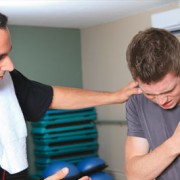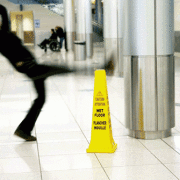Health Club Owners: Know Who You Are Hiring!
Health Club Owners: Know Who You Are Hiring!
Health clubs, fitness centers, and even smaller gyms usually include both employees (those who are paid by, and under the direction and control of their employer), and independent contractors (those who are usually paid on a non-salary, set compensation basis, and not under the direction of an employer).
These two types of workers will likely be mingling with the health club’s customers on a regular basis. They may include sales people, fitness instructors, maintenance staff, and massage therapists. Thus, it’s important for health club owners and managers to know who they are hiring.
Here are a few hiring tips for health club owners and managers to lower their legal risk liability regarding employees and independent contractors:
– Perform criminal background checks.
– Hire only those who possess the necessary certifications, education, and training.
– Supply employer-provided liability insurance for all employees.
– Confirm that all independent contractors provide proof of liability insurance.
– Make certain that employees and independent contractors are clearly differentiated.
These are just a few tips for health club owners and managers to consider. Most health clubs are used by a wide variety of people, including more vulnerable populations such as older adults, people with disabilities, and children. Thus, it is very important for health club owners and managers to ensure the safety of all its customers, as well as limit its own legal liabilities.
Thomas Margolis is a licensed attorney.



